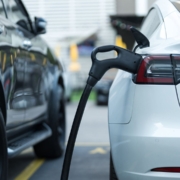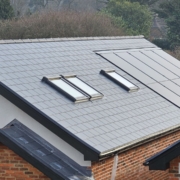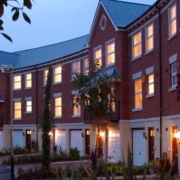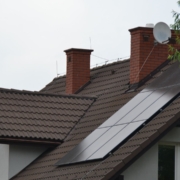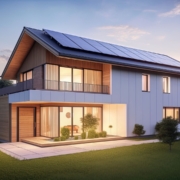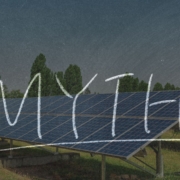As we head towards the end of 2024 and into 2025, solar energy has never been more accessible, efficient, or important. With electricity costs on the rise and climate targets in place, there’s never been a better time for UK households and businesses to consider solar.
Not only does solar power help cut bills, but it also contributes to a greener, more sustainable UK. Here’s a simple guide on why and how to embrace solar energy in 2025 and what trends are making solar power a game-changer.
Why Solar Energy? The Benefits at a Glance
For both homes and businesses, the advantages of going solar in the UK are clear:
Reduced Energy Bills: The Energy Saving Trust reports that a typical solar PV system could save UK households between £250 and £400 annually on electricity costs. For businesses, especially those with high energy demands, these savings can be even greater.
Protection Against Rising Prices: Energy prices in the UK increased by over 50% in recent years, and while solar panel installations require an initial investment, they offer long-term protection against volatile energy prices.
Environmental Impact: Solar power is a clean, renewable energy source that doesn’t produce greenhouse gases. The UK government aims to reach net zero emissions by 2050, and by installing solar, you’re helping to reduce your carbon footprint and contribute to this national goal.
2025 Solar Trends to Keep an Eye On
To make the most of solar energy in 2025, here are some key trends and technologies to consider:
Battery Storage for Solar Power
Battery storage is a hot topic for those wanting to get the most out of their solar systems. While a solar panel system typically generates most of its electricity during the day, many homes and businesses have higher energy needs in the evening. Battery storage systems allow you to store surplus energy generated during the day and use it when you need it most, or even sell it back to the grid for a profit.
For Homes: Battery storage can reduce electricity bills even further by allowing you to avoid costly peak electricity rates.
For Businesses: Battery systems can reduce dependence on grid energy during high-cost times, which is especially helpful for businesses with constant power needs.
Vehicle-to-Grid (V2G) Technology
As electric vehicles (EVs) become more popular, V2G technology allows these cars to serve as backup power sources. V2G systems enable energy stored in EV batteries to be transferred back to the grid or to power homes and offices when electricity costs are high.
Fact: The National Grid estimates that by 2030, EVs using V2G could provide enough stored power to meet up to 20% of peak demand.
For both homes and businesses, investing in V2G-compatible EV chargers can make a big difference in overall energy management and costs.
Smart Charging and Time-of-Use Tariffs
Time-of-use tariffs are on the rise, encouraging EV owners to charge during off-peak hours when electricity rates are lowest. Many smart EV chargers now come with automated features to make this easy, helping reduce energy costs.
For Businesses: Smart chargers in office or public car parks allow companies to support EV adoption and potentially generate an income stream by charging employees or the public for use.
Solar Panel Efficiency and New Designs
Solar technology has come a long way, and modern panels are more efficient and visually appealing. Some of the newest panels on the market are up to 23% efficient (compared to 15-17% a few years ago), meaning you can generate more energy even in the UK’s often cloudy conditions.
For Homes: Opt for a slick design or consider high-efficiency solar panels or sleek solar roof tiles.
For Businesses: Higher efficiency panels allow more power generation on limited roof space, which is great for office buildings or small commercial sites.
Steps to Get Started with Solar in 2025
Whether you’re a homeowner or a business, embracing solar doesn’t have to be complicated. Here are some simple steps to get started:
Assess Your Energy Needs
Take a look at your current electricity use and consider your long-term energy needs. Businesses with high daytime energy use may benefit more quickly from solar, but battery storage makes solar viable for homes and businesses with night-time needs too.
Choose the Right System
For Homes: Look for panels that fit your roof size and energy needs, and consider battery storage to maximise benefits.
For Businesses: Explore solar panel options, especially if you have large roof space, and look into scalable systems that allow for expansion as your business grows.
Look Into Government Incentives
The UK offers various incentives and grants for renewable energy adoption. For instance, the Smart Export Guarantee (SEG) pays households and businesses for excess solar energy sent to the grid. There are also tax incentives for businesses adopting renewable energy, helping reduce upfront costs.
Consider Future-Proofing Options
Investing in V2G chargers, smart meters, and battery storage can help you stay flexible and ready for future energy trends, allowing you to get the most value out of your solar setup over time.
Use a reputable, fully accredited solution provider: Ensuring the provider to opt for is reputable, accredited and offers excellent warranties will give you peace of mind. Use referrals from friends and family.
The Future is Solar: Why Wait?
Solar energy has proven to be a powerful investment for UK homes and businesses. With energy costs climbing and the need to reduce emissions clearer than ever, embracing solar energy in 2025 is a smart, sustainable choice. Whether you’re a homeowner looking to cut bills or a business aiming to reduce operational costs, the benefits of going solar are fast becoming hard to ignore.
By adopting these emerging trends, you can future-proof your energy setup, support a greener UK, and take control of your energy bills. Solar power is more than a trend; it’s a long-term investment in a cleaner, more cost-effective future. So, why wait? Get ready to harness the power of solar energy and make this the year you make the switch.

